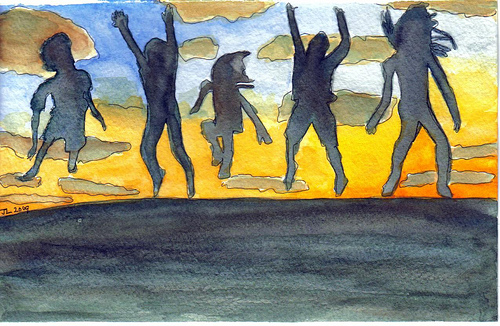Back when Jill Vialet was a kid, she used to play with her neighborhood friends for hours at a time, unsupervised. It seemed unstructured, because no adults had established any parameters. But in fact, all their games had rules.
"We knew how to pick teams, resolve conflicts, there were spoken and unspoken rules," she says. "There was a real culture of play. There was a real structure but kids owned it."
In the past generation, emphasis on play has shifted dramatically. For one thing, kids are rarely left unsupervised for a number of different reasons. Add to that the trend of cutting recess from school hours (only 26 minutes per day as of 2006), and the opportunity to learn how to play for kids has been really cut back.
Vialet is the founder of Playworks, a nonprofit organization that coaches schools, teachers, and playground supervisors on how to encourage good play practice. In some schools, Vialet says, recess is considered a nuisance -- a time for kids to get into fights that go unresolved, resulting in tensions that are brought back into the classroom and spill over into instructional times.
"If you talk with some principals, they see recess as a time of day that has a negative impact on school climate," she says. "There are more suspensions and discipline problems as a result."


